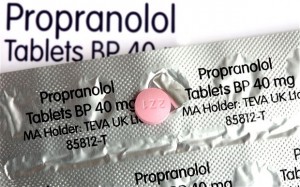Ever wish there was a miracle pill that could fix your deepest flaws? If you’re like most people in Western society, you probably have at some point, and until now, all you’ve heard is that there is no such drug.
But that may be changing due to a recent study in the UK. Rather than tackling obesity or shyness, however, scientists at Oxford University believe they may have found a pharmaceutical link to reducing racism.
The drug in question is a common beta-blocker called propranolol, and it works by helping regulate heart rate and emotional responses. Because of this, it is also used to help treat panic and anxiety disorders. It’s this aspect of the drug that scientists believe can help control what they’re calling “implicit” racism, the prejudice that happens on a subconscious level.
The study, led by Dr. Sylvia Terbeck, an experimental psychologist, involved two groups of eighteen people. Each group undertook a racial Implicit Association Test. A third of the participants who had taken propranolol had a negative score, which means that on a subconscious level, they expressed no racial bias. The placebo group showed no such scores.
It’s important to note, however, that propranolol appears to have no effect on “explicit” prejudice, which is governed by the conscious mind.
But before you go petitioning Congress to consider mandating the drug under the coming national health care, consider what Dr. Chris Chambers, of the University at Cardiff’s School of Psychology, had to say: “We can’t rule out the possibility that the effects were due to the drug incidentally reducing heart rate. So although interesting, in my view these preliminary results are a long way from suggesting that propranolol specifically influences racial attitudes.”
And that says nothing for the ethical implications of medicating morality.
Photo: ALAMY/Telegraph








